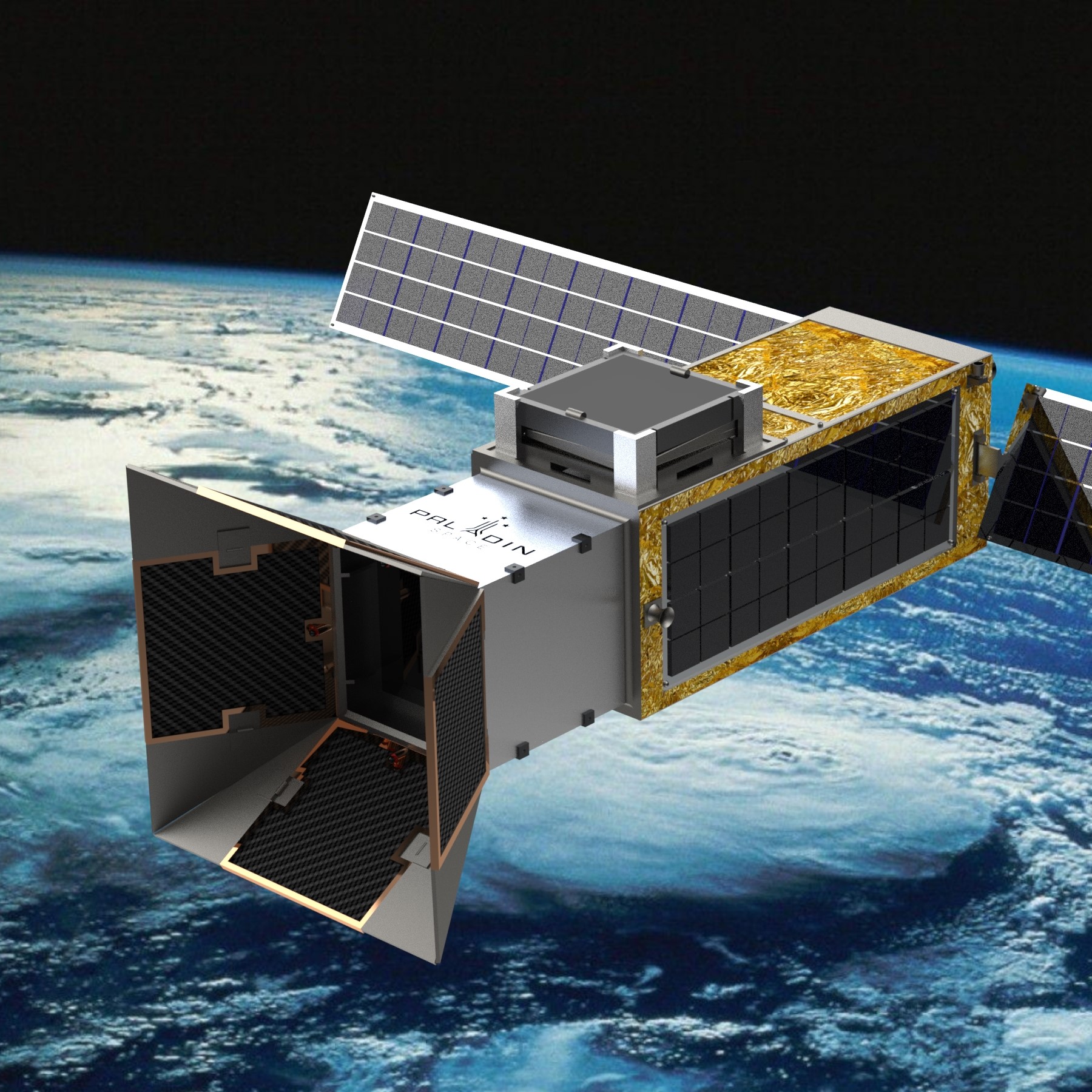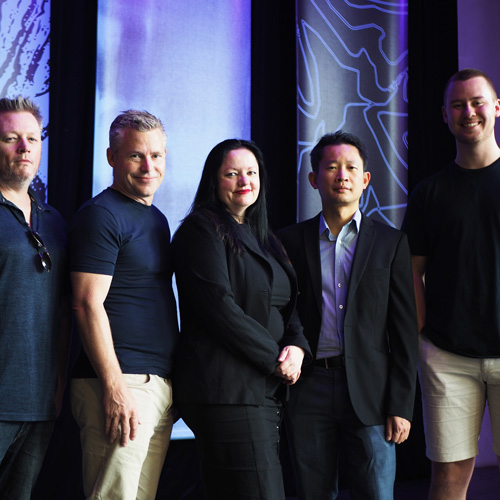Benefits
- The world’s first reusable solution for removing space debris
- Increases the safety of astronauts onboard space stations by minimising the risk of collisions with debris
- Extends the lives of important government and private satellites by minimising the risk of debris collisions within their orbits.
Technology
The Reusable Extractor of Debris (RED) uses a patented process to capture debris within a container, with an in-built system that prevents the contents from escaping when additional pieces of debris are captured. Once the container is full, it will be ejected into a controlled descent via onboard propulsion and control systems until it safely burns up in Earth’s atmosphere. Using a clever array of sensors and in-built autonomy, the RED satellite will be able to repeat this process with new containers to capture and remove as many items as possible in various highly congested orbits. In preparation for the future of in-orbit servicing and to align with Paladin Space’s vision of sustainability, the RED satellite is designed to be repairable and refuellable in space. Not only will this be a cost-effective and efficient solution, but it will most importantly allow RED to continue making Earth’s orbit safer for us to use.
Potential markets
The entire space ecosystem will benefit from space debris removal, and as such, the target market for Paladin Space is worldwide governmental space agencies looking to reduce the risk of collisions with operational spacecraft and astronauts, and the private industry to provide safer orbits for their satellites. In the future, mandates for governments to remove space debris will open a large emerging target market, as well as the introduction of recycling centres in space that will require space debris as a source of reusable material.
Partnering opportunities
Paladin Space is seeking collaboration with governmental space agencies, universities, and funding organisations to pave the way for a demonstrator mission. In the interim, Paladin has engaged with a major space sensor supplier who has expressed their desire to model our debris removal missions in their software to provide the necessary onboard sensor suite solution.








